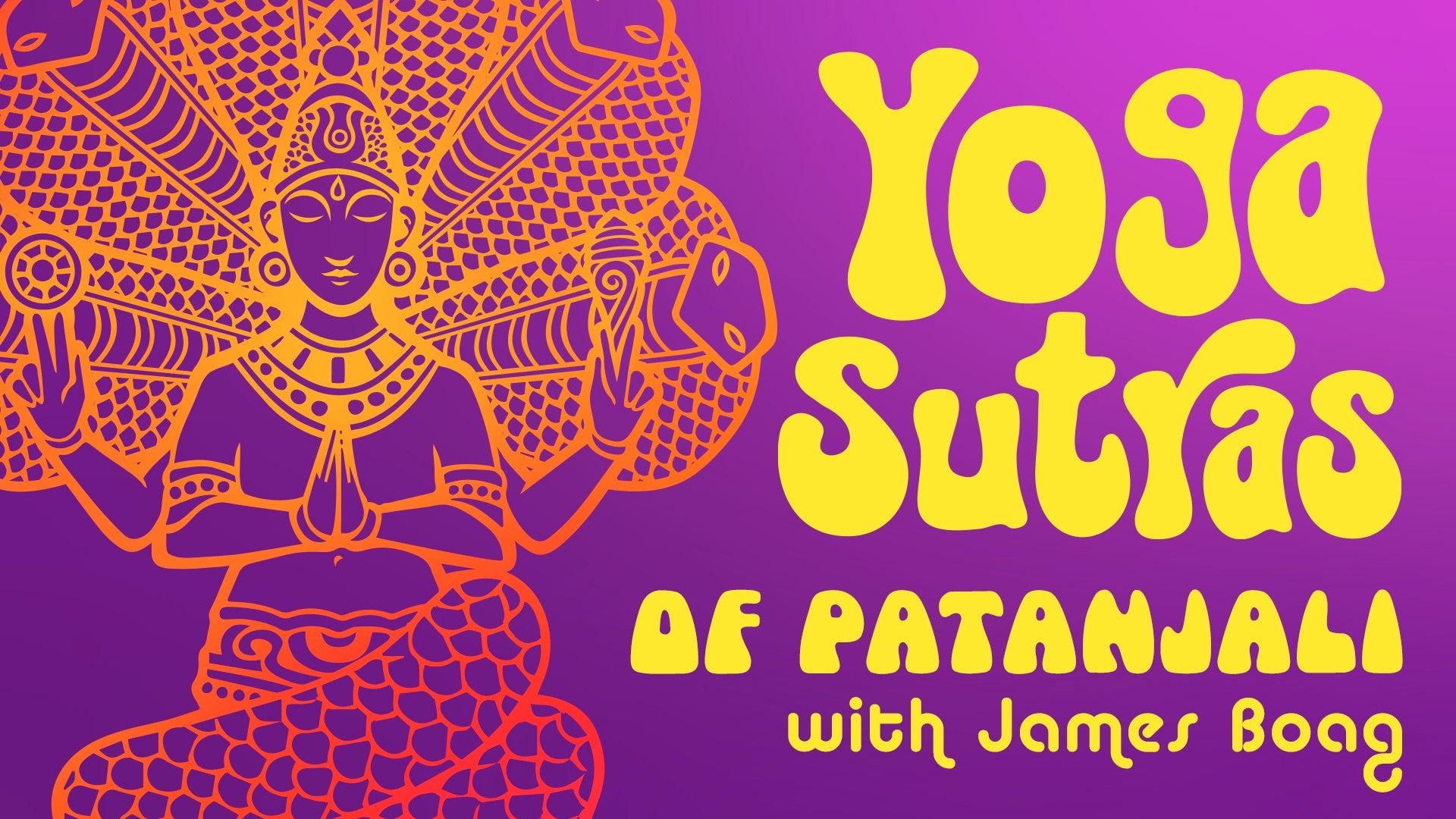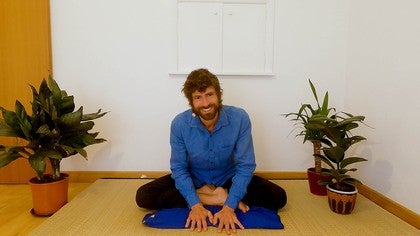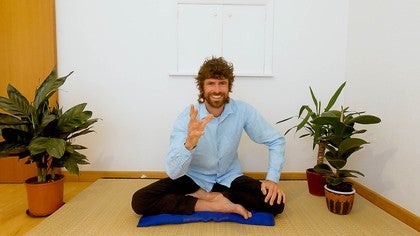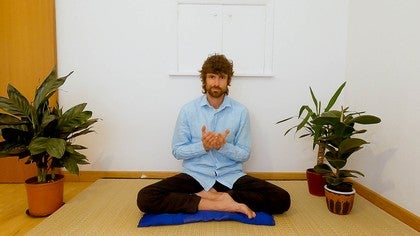Description
About This Video
Transcript
Read Full Transcript
Sutra 42. So now the second of the Niyamas is Santoshka. Now Santoshka means contentment. The root is, like, pushed in Sanskrit means to be pleased. So, Sun, Torsha, to be well pleased, to be content.
And potentially says, what is the effect of being of cultivating Santoshan, Santoshat, from Santoshan. This means unsurpassable, Utama, means the ultimate, an ultimate that cannot be passed, to be surpassed, Sukal Abaha. So from the prax of Santoshia, one attains succumb, an easefulness, a happiness, a good space. One comes to know an ex most excellent space. One comes to dwell in a space the good vibration of which cannot be surpassed. So from the practice of Santoshia, we succeed to the ultimate in happiness beyond happy, a blissfulness, you might say. Vyasa in his commentary says all of the pleasure that one can have in all of the worlds and all the heavens does not amount to 116th part of the happiness, the pleasure, the fullness that James. From being free from desires.
Santoshan is very much part of this practice of liberating us from the troubling effect of desires. Now, when people encounter the principle of Santosha, some people think, wait a minute, though. If I'm just always content might that not lead to a sense of kind of laziness or complacency? Might it mean that I don't really put forth the necessary effort that Potanjali has already said is absolutely intrinsic to yoga practice. Is there something in that? Definitely.
Content does not equal accency. Really what I would suggest is that in order to be content, then we have to make a steady honest inquiry into the source of our desires. So it doesn't mean ignoring the different things that we feel pulled towards But rather, when we do feel pulled, looking, what's the root of this? And at the same time, being grateful for what we have. And gratitude, as we mentioned previously, is very much connected to the idea of presence.
A presence, receptivity awareness, gratitude. This is one practicing these principles helps us live in the golden capital of Bohemia Prague. As I practice gratitude, it makes me feel a little bit happier, a little bit more content. When I feel happy and content, it needs to be present. When I'm present, I'm more receptive.
My awareness expands it invites gratitude, and I have this virtuous, positive, and gendering circle. Of qualities to cultivate. From Santoshia James the happiness that cannot be surpassed. Now, Vialysis commentary has suggested that this happiness goes way beyond anything that we can have by external experiences, even in the heavens. So what is the suggestion here?
Open your eyes and look within, in the words of Bob Molly. Again, Whatever we're doing, can we invite our awareness to return back to the source? But Tony's gonna tell us more about this when he introduces the 5th of the ungens in the Ashtanga Prathya Hardet. But Santoshia is linked to that We're gonna see, as we continue, we're gonna see that all of the organs, all of the eight limbs, each one could be considered a kind of microcosm of the prac is because to be established in any one of the limbs, like I mentioned before, a baby doesn't grow one limb at a time. All the limbs grow together. Similarly, each of the James and the Niyamas, they support and compliment and fill out each other. So as we practice Santortion, This is going to overlap with other James and Niyamas and with other angus, so prattyahara, taking our sense experience back to the source.
When we do that, we may uncover the secret of the yoga of action that pleasure or relish or happiness does not reside in the object that is tasted or experienced, but rather with the degree of presence we bring to that experience. So, for example, if I'm tasting the lovely food, If as I'm tasting the food, I notice myself taste it's tasting, then I can start to tune in and appreciate the richness of that conscious experience. And then the richness rests not so much on the particular food item, but more I come to recognize on the way I deploy all my powers of awareness, And when I bring the powers of my awareness into that concerted yogic presence, the action can become. It's own fulfillment, its own reward. So even if I'm doing a relatively mundane task, let's say I'm engaged in that housework, or I'm cleaning my body, doing something simple. Like, I'm, you know, washing my hands, or I'm washing the dishes, or I'm scrubbing the floor.
If in doing that simple action, I bring all the powers of my awareness into this present moment, then I can perhaps relish a certain fullness right here right now in this simple action, and I can it can be its own fullness, its own reward. Because if I bring myself fully into this present moment, it's like I leave no space to want more. It becomes its own completion. So Santoshin, again, links back to presence in order to be grateful and tend with what I have, this demands that I actually show up here and now with that presence and that recognition of what is available to me here and now So it's an actual invitation to bring more of myself into what I'm doing. All of these powers that are held that are present, that are vital within the container of my being, the practice of Santoshia, means inviting them all to participate in this present moment.
And so who is happy in the world? Krishnan Najita would say the person whose attitude is conducive to happiness, the person whose approach to life, invites happiness. So let us be grateful for the things that we have. Let us cultivate those skills, I was gonna say, those habits, those tendencies are actually meeting each moment with more recognition, more gratitude, so we can make it the maximum opportunity to keep learning, to keep growing, and to keep faffirming more of that deep essence, which is only fullness and only wholeness. And then even in simple activities, we can come perhaps to that great contentment that feels completely satisfying.
And through which we start to free ourselves from the limits or the burdens of those desires that pull us into discontent. Because if we learn to make whatever we're doing, its own fullness, then we can become a person who's much, much more robust, much better able to navigate the sling and arrows of worldly existence, more skillfully. And here in this world of constant change, to actually do what we can to tune in to that underlying consciousness that is always whole and always full.
Yoga Sutras of Patanjali: Yamas and Niyamas
Comments

You need to be a subscriber to post a comment.
Please Log In or Create an Account to start your free trial.








